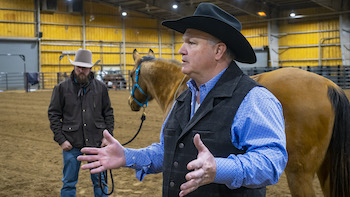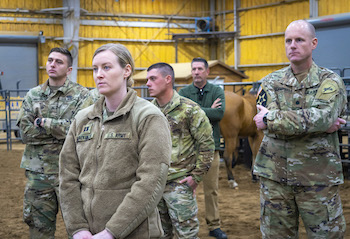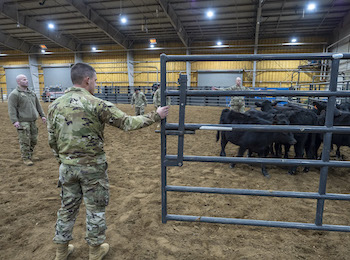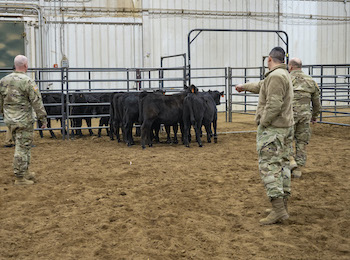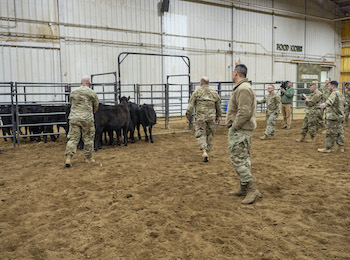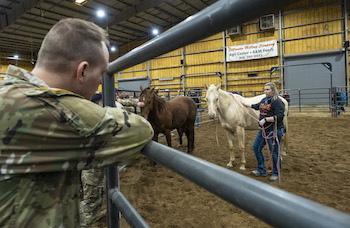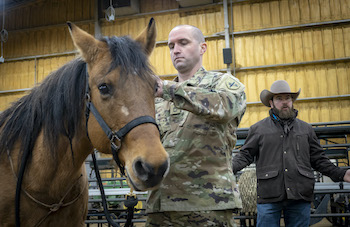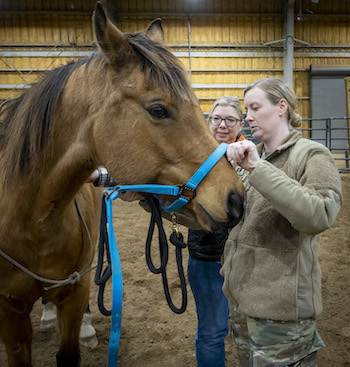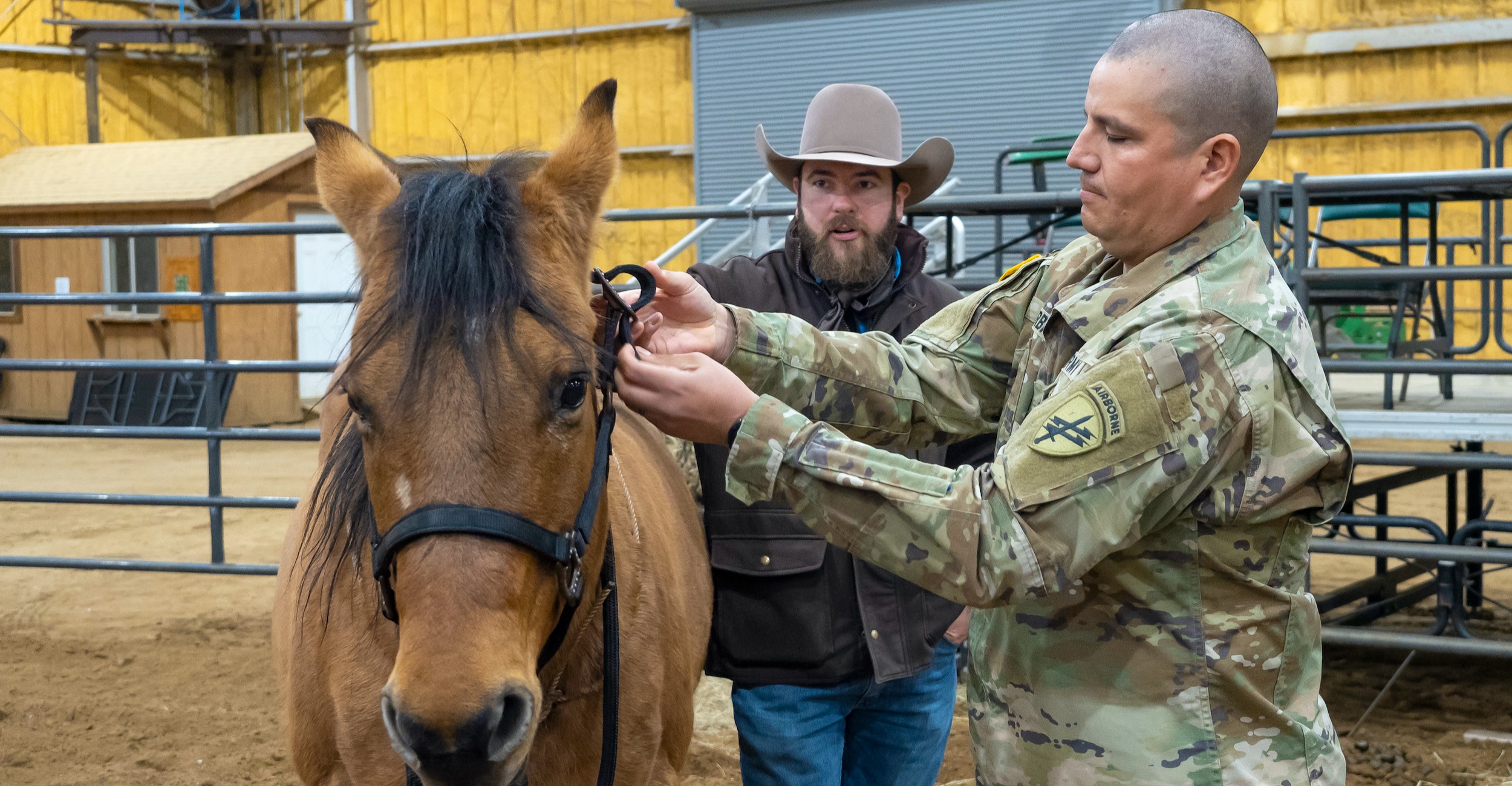
Extension educators host emergency livestock training for Army reservists
Thursday, March 10, 2022
Media Contact: Gail Ellis | Communications Specialist, Copywriter | 918-744-9152 | gail.ellis@okstate.edu
The Oklahoma State University Extension Disaster Assistance Response Team (DART) hosted a special large animal training session for Oklahoma Army Reserve soldiers in February.
OSU Extension livestock specialists from Rogers County and the northeast area supported DART officials at the Rogers County Expo Center with hands-on demonstrations to prepare soldiers for situations they could encounter locally or in a foreign country.
From a cattle truck rollover on one of Oklahoma’s busy interstates to a fast-moving wildfire or a widespread emergency in a remote village overseas, working with nervous, scared or injured livestock is a complicated task that requires patience and a steady hand.
“You can’t forget the basics when you’re in a disaster situation and they’re not your animals,” said Donna Patterson, agriculture and 4-H Extension educator for Rogers County. “Their behavior is going to be much different in a crisis. We want to ensure all animals and humans are safe.”
Army reservists from the 486th Civil Affairs Battalion, based in Sand Springs, learned how to identify brands, colors and sex characteristics of horses and cattle. The interactive training included guidance on how to safely move a group of animals and halter a horse.
“In a disaster, whether a tornado or fire, animals may be injured, and if overseas, there may be diseases present,” Patterson said. “It’s important for first responders to identify a sick or hurt animal, understand basic first-aid and take biosecurity precautions when they return to the U.S.”
“We discussed the different flight zones cattle have, how to move among them calmly and slowly and what to remember when penning horses or cattle off a road,” said Earl Ward, OSU Extension’s northeast area livestock specialist.
The Army Reserves requested livestock training from OSU Extension. Civil Affairs Soldiers act as a liaison between the Army and civilian populations.
“Any training we can provide our soldiers to sharpen their skills is extremely beneficial to us,” said Lt. Col. Casey Campbell. “A lot of our soldiers don’t have an agricultural background, and when we work overseas, we might be around sheep or goats. We’ve been in a virtual setting for meetings the past year and a half, and it’s good to see our soldiers interacting with the animals while listening and learning from OSU experts.”
Scotty Stokes, director of Rogers County Emergency Management, who works closely with Rogers County Extension, said he’s witnessed the need for livestock training.
“We experienced it in 2019 when we lost hundreds of cattle to flooding,” he said. “If we’d been able to have the National Guard help us, we might have prevented some of that. Sadly, we lost a lot of cattle.”
OSU Extension specialists hope the Army Reserves DART training is the first of many similar events for groups such as firefighters, police officers and other first responders.
“We’re taking what we love as ag educators within OSU Extension and extending it to others,” Ward said. “It’s our role to provide this education, and with our presence in all 77 counties, we’re the boots on the ground that can respond fast and help people become more comfortable around animals.”

